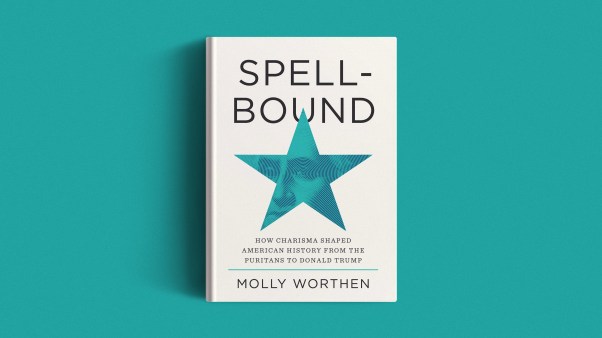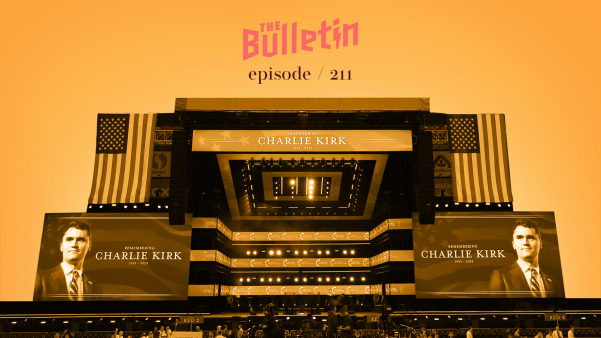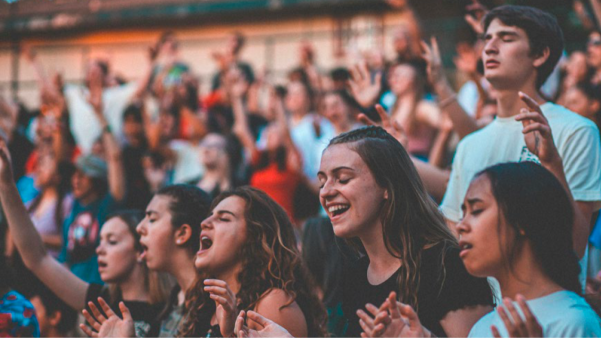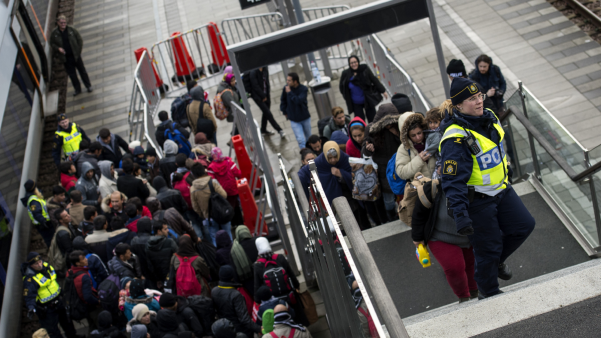In 1935, real-life educator Melvin B. Tolson created quite a name for himself by assembling an award-winning debate team at Wiley College, one of the oldest Black colleges in the nation. When he wasn’t leading and motivating students, Tolson also created a bit of a stir with his radical politics. The Great Debaters chronicles this chapter in the life of a fascinating man—and in the life of a racially divided nation.
In the opening scenes, we see stern theologian James Farmer, Sr. (Forest Whitaker) welcoming the freshman class of 1935 to Wiley, a small Methodist college located in Marshall, Texas—the heart of the segregated South. Later this first day of class, Tolson (Denzel Washington) introduces his students to the words of emerging revolutionary Black writers—and announces the debate team tryouts at his house that night.
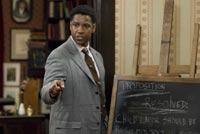
The tryouts draw 45 students, vying for four positions. Intelligent-but-brooding Henry Lowe (Nate Parker) makes the team, along with returning member Hamilton Burgess (Jermaine Williams). The team is rounded out by alternates Samantha Booke (Jurnee Smollett), the only female to try out, and James Farmer, Jr. (Denzel Whitaker), the 14-year-old son of the college president.
Tolson employs unrelenting and unconventional methods to train his team, which pay off in victory after victory in debates with other Black colleges throughout the country. Unbeknownst to his students, Tolson writes to several white universities to try to secure an unprecedented debate with one of them; his ultimate dream is a long-shot debate with Harvard.
Also unbeknownst to his students and even to his family, Tolson spends his evenings trying to help unionize the local sharecroppers and farmers, a mixed-race partnership that has local and state police on edge—and occasionally on the offense. When college officials and students’ parents catch wind of Tolson’s political activities, there are consequences for him and his students.
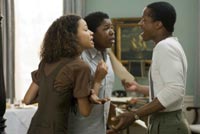
The Great Debaters is Denzel Washington’s sophomore directorial project, and it features similar themes to his first film, 2002’s Antwone Fisher. The most notable similarity is a young, troubled African-American protagonist on the brink of adulthood being mentored by an older father figure. There’s also a strong emphasis on the power of education and the need to step up to adult responsibilities. Thankfully, none of these themes seem heavy handed.
Unfortunately, needed background is missing for many of the main characters. How did Tolson, a college professor, get involved in local union activity—and why? We know Henry’s parents are gone and that he was raised by his grandparents, but we don’t know how he’s able to quote so many academics, theologians, and poets. And why does he escape into boozing and womanizing whenever things get tough? Where did Samantha get the courage to want to be one of the nation’s first female Black lawyers? And why is 14-year-old James Farmer, Jr. in college? Sure, his dad is the president—but why isn’t he studying at his grade level? None of these key questions gets answered in the film.
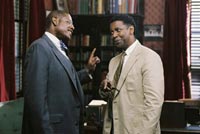
While the script has a few holes, the acting is superb. Forest Whitaker turns in another powerful performance as a strong, quiet man who often seems on the brink of either laughter or a fistfight. Washington deftly walks a fine line as a mentor who’s dealing with his own demons while helping students sort out theirs. Nate Parker and Jurnee Smollett smolder as students finding their way and their voice amidst the tumultuous segregated South.
The debate sequences are strong, especially since they center on key topics of that day—child labor, welfare, civil disobedience. However, it would have been interesting to see how these arguments came about, and if the students ever wrestled with arguing points they didn’t agree with. A little risk-taking in this arena would have prevented some of the film’s formulaic feel—as would including one or two positive white characters. As is, the few white people in the film are dirty, ignorant farmers; racist, corrupt police; and arrogant Ivy League students. Certainly these are accurate depictions for many whites of that day, but they don’t represent all of them.
In the end, the plot holes and formulaic feel are overcome by the superb acting. As is true in the world of debate, carefully chosen and delivered words win the day.
Talk About It
Discussion starters- Why do you think each of the students is drawn to the world of debate? What broader purposes might competing serve in their lives?
- What did you think of Tolson’s political activities? At one point he’s told that his union efforts “aren’t his fight.” Do you agree or disagree with this notion?
- In one scene, James Farmer Sr. tells his son “We do what we have to do to do what we want to do.” In what ways to you agree or disagree with this statement?
- In another scene, Samantha talks about using words as weapons, saying they’re more effective than guns. In what ways have you used words as effective weapons, either to positive or negative effect?
The Family Corner
For parents to considerThe Great Debaters is rated PG-13 for strong thematic material including violence and disturbing images. Most notably, the film includes a lynching. There’s also mild language and brief sexuality (though no nudity) between two college students. Because the movie is based on a real character and on real racial issues, this could be a great education for older, mature teens. The emphasis on education and the power of our words are a bonus for young students. However, the racial tensions and violence might be inappropriate for younger viewers.
Photos © Copyright MGM
Copyright © 2007 Christianity Today. Click for reprint information.







